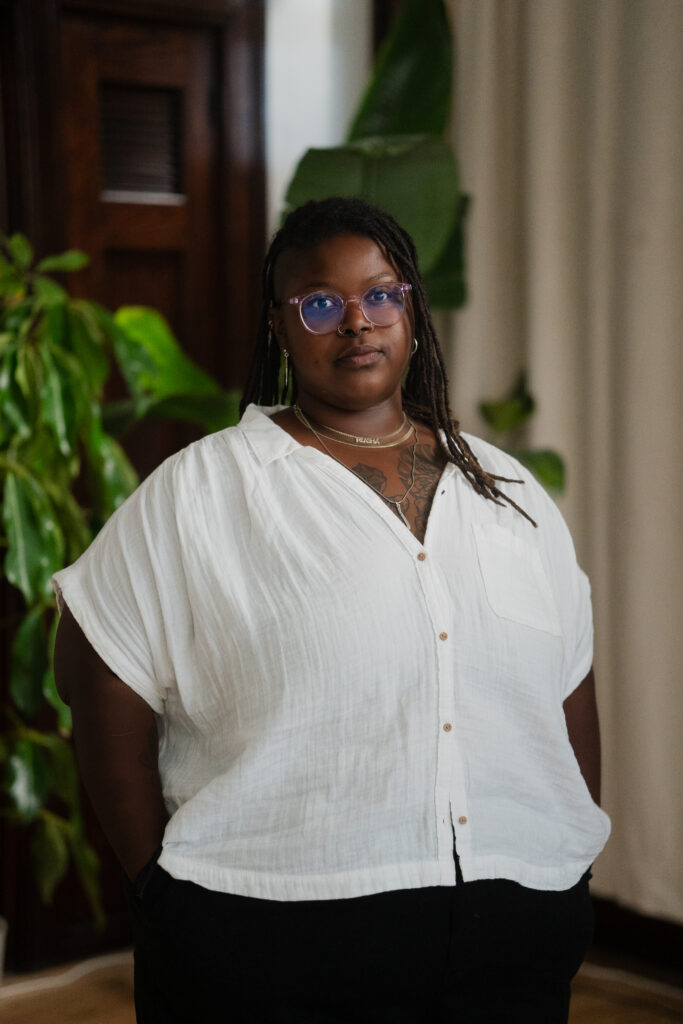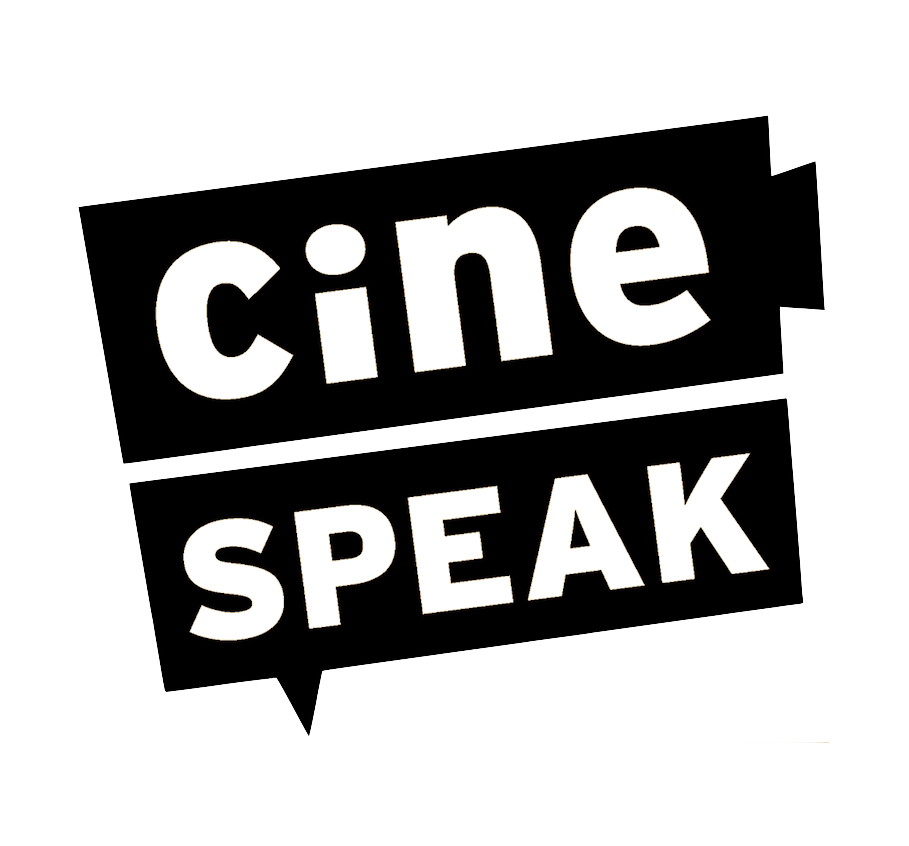
18 Jun Philadelphia Artist Spotlight: Lanaa Dantzler
BY IREASHIA BENNETT
The cinéSPEAK Journal publishes a monthly Philadelphia Artist Spotlight highlighting local filmmakers and moving image artists doing unique and impactful work.
Born and raised in West Philadelphia, teen director and screenwriter Lanaa Dantzler uplifts the power and spirit of community in her films. Dantzler wrote, directed, and starred in her debut short film Five Angry Black Girls (2023), about a group of Black teenage girls in detention coming together during an earthquake at school. Her second film, The Jubilee Project (2023), is a short documentary about The Jubilee Publishing House in Philly, where elementary school students publish their own books while learning about the different layers of the publishing industry. Dantzler is a recipient of the Local Selection Award from the Philadelphia Youth Film Festival and the award for Best Costume Design at the 2023 Black Girls Film Camp. She served as the producer for an upcoming film, As You Are, about Black queer youth in church, which will premiere at the 2024 Black Girls Film Camp in Charlotte, North Carolina on June 22, 2024.
The cinéSPEAK Journal spoke with Lanaa Dantzler about her experience as a teen filmmaker, her new film As You Are, and her vision for Philadelphia’s film community.
cinéSPEAK: What inspired you to be a filmmaker?
Lanaa Dantzler: I’ve never grasped the concept of reservation, which has always isolated me from my peers. When there’s something on my heart, I have to express it, usually loudly. Ever since I was younger, I loved reading stories and loved telling them. [I wrote] my first book at [eight-years-old] about a lonely cowboy. I’d done poetry and theater, but just didn’t connect artistically to anything other than the medium of film, from catching the newest Pixar feature in theaters with my siblings to my A24 binge being the only thing to get me out of bed in 2020. Being a bit of a control freak, I was always fascinated by the scale of movies–the idea that there were so many moving pieces and for it to be great, everyone had to chip in. A collaborative industry, like filmmaking, gives me hope for the world we live in. Working in film gives me the opportunity to contribute to the narrative on a scale that matches the message. I can say everything I want to say in the method I love.
Movies are just so COOL, and that was enough to hook me, but the world is not so cool sometimes. In 2020, I was becoming a teenager but also being exposed to some of the darkest parts of my country and its history. While my love for film blossomed, my mind spiraled with anxiety and stress over how I fit into a world that finds my right to matter debatable. I wanted to scream at everyone, I wanted to tell people why it mattered to me and why I was hurt. It all came back to writing and movies. I realized that the only thing that could make me feel anything other than constant anger was watching them. I began to really digest the power they had on my emotions and how much they truly taught me. That’s when it really started to feel natural, as if all of my sensitivity and anger were worth something. If I could channel it and perfect it, I could make people feel the way I did. I wouldn’t have to be alone.

cinéSPEAK: How did you get started on your recent film project?
LD: As of right now, I am in the production phase of a project with Black Girls Film Camp. I serve as script supervisor and producer of As You Are, a short film directed by Daria Strachan. The film is about a Black queer girl named Tabitha, who learns the true meaning of acceptance. The story is told through a religious lens, with the title playing on the famous saying ‘come as you are.’ When I was approached to work on the film, I immediately jumped at the opportunity.
Though I am not allowed to disclose details about the plot at this time, it is very subversive compared to many of the queer stories I’ve seen in film. I know that the religious [community], specifically the church community, has caused a lot of harm to LGBTQ+ youth. This film, however, explores a more modern take on the experience of being a queer Christian person. I really hope the short resonates with not only LGBTQ+ people but anyone who’s felt unaccepted in their lives. As You Are is scheduled to release on June 22, 2024.
cinéSPEAK: What topics and themes are you exploring in your current work?
LD: A running theme I think is present in everything I work on is unity. I really love stories that bring people together in very unconventional ways, even outside of film. It’s very important to me to make stories people can relate to, that will inspire change in us. My first short film, Five Angry Black Girls, was about how the pressure of stereotypes that get pushed on women, especially Black women, divide us. The message is about how the key to eliminating this division and anger is friendship. Colorism, transphobia, fatphobia, xenophobia, etc. are the cause of so [many] issues in my community. None of these issues are my community’s invention and only benefit those outside of it.
Even outside of film, I was made aware of the crisis in the Democratic Republic of the Congo and it devastated me. Last February, I helped organize two fundraisers at my school, which raised $1,000 for DRC. I took the opportunity to educate my Black classmates on how we weren’t so different from those across the water. Everything has gotten so complicated, but the solution is so simple. I feel strong empathy and identification with everyone; my sensitivity is what makes me an artist. We are stronger when we care and understand each other, [and] I want my work to reinforce that.

cinéSPEAK: How has Philadelphia shaped and influenced the process and content of your work?
LD: Growing up in West Philly, there are so many different kinds of people and stories. You really have to listen and soak up those experiences. I watched my area go from barbed wire fences to people leaving their doors unlocked, and that’s quite the story arc. There’s just so much going on that you can’t be selfish, and it’s an artist’s dream. The people here share so much, and they’re so kind to me. I go to school with people from all different parts of the city, [and] some parts look like whole other states.
It’s just so diverse and when you’re trying to write and create informed content, it’s so beneficial to be surrounded by various personalities. Even after being here my entire life, I know I’ve experienced less than a fraction of what this city has to offer. That revelation is so grounding, and it makes me so eager to learn. Philadelphia is so inspiring and generous to me, it’s shaped my profile in ways that still surprise.
cinéSPEAK: What impact do you hope your work will have in the Philadelphia community?
LD: Cities like New York [and] Los Angeles get really fleshed out as worlds in film. We’re at a point where someone who’s never been to LA knows the culture in Compton is completely different [from] Beverly Hills. Though stories have taken place in Philly, the world doesn’t really understand our anatomy. I’d hope to represent us in a way that’s honest and far-reaching. This city isn’t a backdrop, it’s a character in itself.
There’s so much life and so much variety that gets overshadowed. Like everything I make, I just want my community to feel seen and proud of what I create. Even if it [didn’t] take place here, all my work reflects my experiences, and I will never not carry my home with me. The ultimate goal, though, is to inspire other people from Philly to pursue this career and join the fight to put us on the map (or the script).
If you want to keep up with Lanaa Dantzlers’ work, you can check out her film Five Angry Black Girls here or follow her Instagram @lanaa2as.
Featured Image: Image of Lanaa Dantzler on set for Five Angry Black Girls. Photo credit: Tymir Oveida.
Would you like to be featured in a future spotlight? Please fill out the Philadelphia Artist Spotlight form. The cinéSPEAK Journal maintains sole discretion over the publishing of any information provided via the form. Questions: journal@cinespeak.org

Ireashia M. Bennett (they/them) is a Philadelphia-based filmmaker, photographer, and writer whose work aims to celebrate Black queer and disabled folks in the form of new media, short films, and photoessays. They earned a B.A. in Journalism from Columbia College Chicago and are pursuing an MFA in Film and Media.

Sorry, the comment form is closed at this time.